-
About
- About Listly
- Community & Support
- Howto
- Chrome Extension
- Bookmarklet
- WordPress Plugin
- Listly Premium
- Privacy
- Terms
- DMCA Copyright
- © 2010-2025 Boomy Labs


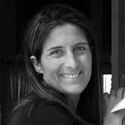 Elena Crescia
Elena Crescia
Listly by Elena Crescia
TEDTalks on Education
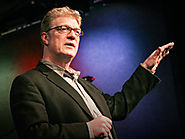
Sir Ken Robinson makes an entertaining and profoundly moving case for creating an education system that nurtures (rather than undermines) creativity.
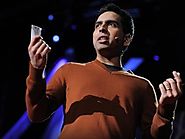
Salman Khan talks about how and why he created the remarkable Khan Academy, a carefully structured series of educational videos offering complete curricula in math and, now, other subjects. He shows the power of interactive exercises, and calls for teachers to consider flipping the traditional classroom script -- give students video lectures to watch at home, and do "homework" in the classroom with the teacher available to help.
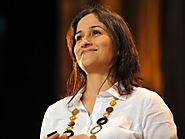
Kiran Bir Sethi shows how her groundbreaking Riverside School in India teaches kids life's most valuable lesson: "I can." Watch her students take local issues into their own hands, lead other young people, even educate their parents.
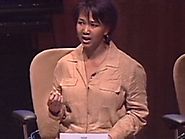
Mae Jemison is an astronaut, a doctor, an art collector, a dancer ... Telling stories from her own education and from her time in space, she calls on educators to teach both the arts and sciences, both intuition and logic, as one -- to create bold thinkers.
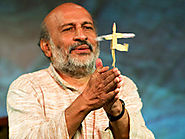
At the INK Conference, Arvind Gupta shares simple yet stunning plans for turning trash into seriously entertaining, well-designed toys that kids can build themselves -- while learning basic principles of science and design.
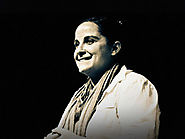
Diana Laufenberg shares three surprising things she has learned about teaching -- including a key insight about learning from mistakes.
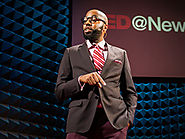
What do rap shows, barbershop banter and Sunday services have in common? As Christopher Emdin says, they all hold the secret magic to enthrall and teach at the same time - and it's a skill we often don't teach to educators. A longtime teacher himself, now a science advocate and cofounder of Science Genius B.A.T.T.L.E.S.
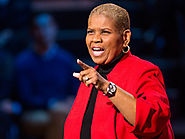
Rita Pierson, a teacher for 40 years, once heard a colleague say, "They don't pay me to like the kids." Her response: "Kids don't learn from people they don't like.'" A rousing call to educators to believe in their students and actually connect with them on a real, human, personal level.
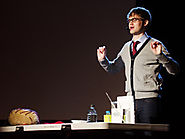
High school science teacher Tyler DeWitt was ecstatic about a lesson plan on bacteria (how cool!) -- and devastated when his students hated it. The problem was the textbook: it was impossible to understand. He delivers a rousing call for science teachers to ditch the jargon and extreme precision, and instead make science sing through stories and demonstrations.
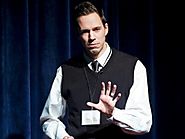
Today's math curriculum is teaching students to expect -- and excel at -- paint-by-numbers classwork, robbing kids of a skill more important than solving problems: formulating them. Dan Meyer shows classroom-tested math exercises that prompt students to stop and think.
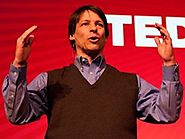
Someone always asks the math teacher, "Am I going to use calculus in real life?" And for most of us, says Arthur Benjamin, the answer is no. He offers a bold proposal on how to make math education relevant in the digital age.
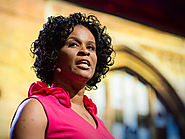
On Linda Cliatt-Wayman's first day as principal at a failing high school in North Philadelphia, she was determined to lay down the law. But she soon realized the job was more complex than she thought. With palpable passion, she shares the three principles that helped her turn around three schools labeled "low-performing and persistently dangerous."
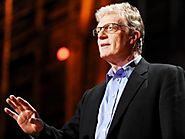
In this poignant, funny follow-up to his fabled 2006 talk, Sir Ken Robinson makes the case for a radical shift from standardized schools to personalized learning -- creating conditions where kids' natural talents can flourish.
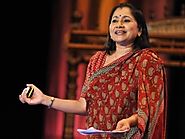
Educating the poor is more than just a numbers game, says Shukla Bose. She tells the story of her groundbreaking Parikrma Humanity Foundation, which brings hope to India's slums by looking past the daunting statistics and focusing on treating each child as an individual.
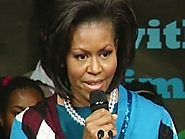
Speaking at a London girls' school, Michelle Obama makes a passionate, personal case for each student to take education seriously. It is this new, brilliant generation, she says, that will close the gap between the world as it is and the world as it should be.
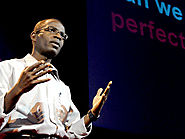
A liberal arts education is critical to forming true leaders, says university head Patrick Awuah -- because it builds decision-making skills, an ethical framework and a broad vision. Awuah himself left a career at Microsoft in the US to found a liberal arts school in Africa: Ashesi University, in his home nation of Ghana.
